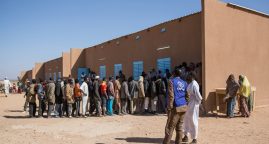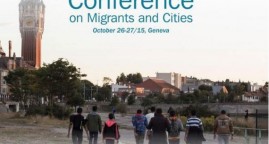“Inaction is sometimes more costly than action.”
Since the Arab Spring the situation of the Muslim world is experiencing a bloody evolution. The Syrian desert has become a battlefield between Sunnites and Shiites, the proponents of moderate Islam and fundamentalists.
Instability in the region has led to the deaths of nearly 250,000 people and to the displacement of nearly 4 million refugees.How can the internationalization of an initially local conflict be explained? Does the European Union, which is directly concerned by the terrorist threat from this region, have a role to play in the political process? If so, in what way?
Interview and response elements with Jean-Pierre Filiu, professor at Sciences Po (Paris), also teacher at the universities of Columbia (New York) and Georgetown (Washington). He recently published “The Arab Revolution, ten lessons on the democratic uprising” by Fayard.
Read the full article on the Robert Schuman Fundation website
Related Articles
How will joining the UN change IOM?
08/12/2016. The International Organization for Migration become a “related organisation” of the United Nations
Conference on Migrants and Cities
10/27/2015. The Conference on Migrants and Cities was held in Geneva on 26 and 27 October 2015
INTERNATIONAL MIGRANTS DAY – 18 December 2020
18/12/2020. 20 years ago, the United Nations General Assembly established the 18th of December as “The International Migrants Day.” Today safe migration and more generally, human mobility are more pressing issues than ever.





